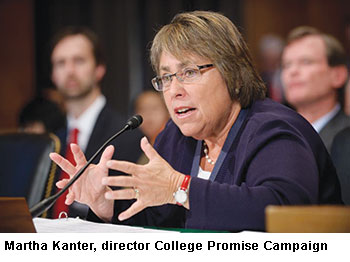 Leaders of the US ‘free college’ movement are hoping to ride a wave of grassroots reforms to put the issue at the heart of the national debate ahead of the next presidential election.
Leaders of the US ‘free college’ movement are hoping to ride a wave of grassroots reforms to put the issue at the heart of the national debate ahead of the next presidential election.
With total student debt in the US totalling $1.5 trillion (Rs.105 lakh crore), the large Democratic field of potential challengers to Donald Trump in 2020 is full of leading advocates of reducing or abolishing university fees — including former vice president Joe Biden, 2016 contender Bernie Sanders, Massachusetts senator Elizabeth Warren and Texas congressman Beto O’Rourke.
Experts remain sceptical about whether a nationwide abolition of fees in the US would be realistic: the cost — tens of billions of dollars a year — seems eye-wateringly high at a time of growing budget deficits. US voters are generally supportive of education, says Jamie Merisotis, president of the Lumina Foundation for Education, “but I’m not sure that free college is really a ‘winning’ issue”. Mark Becker, president of Georgia State University, concurs. “It is fundamentally within the American psyche that something that is broken is ‘free’,” he says.
What does seem popular and growing, however, may accomplish a lot of what ‘free college’ advocates are actually seeking. Nearly half of US states and several hundred local governments have enacted ‘promise’-style programmes that offer free or debt-free tuition to some subset of lower-income students for at least a portion of their college years.
Universities are also increasingly focusing on vocational-style programmes, which could be part of the broader effort to give all students the education that best fits them at an affordable price, says Martha Kanter, under-secretary of state of education in the Obama administration, and now executive director of the College Promise Campaign.
Federal support from a potential president who backed free college could help, she says, but the need is so great that success will require wide-scale coordination among governments, colleges, donors and employers. Free college may not be realistic, Dr. Kanter says, but the terminology is still valuable as a way of helping prospective students and their families — many of whom couldn’t even conceive of going to college — consider it realistic. “‘Free’ is a term that draws people in, who don’t think things are possible,” she says.
(Excerpted and adapted from The Economist and Times Higher Education)

























